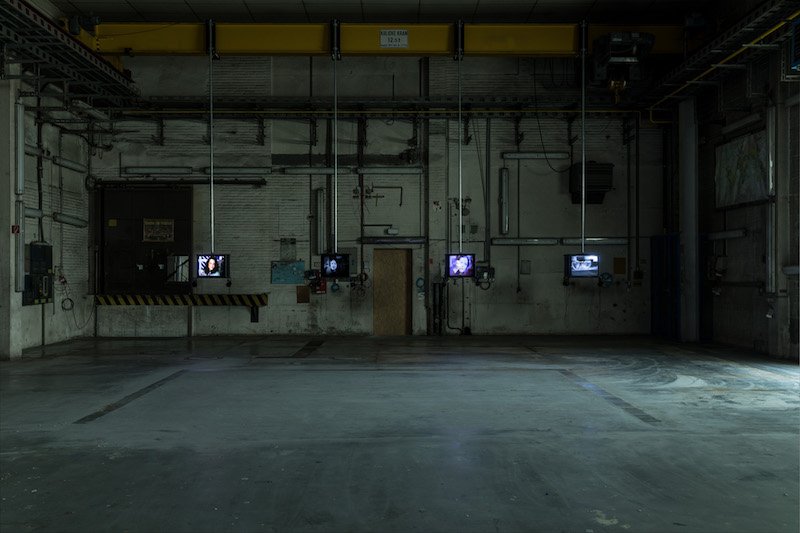Lynn Hershman Leeson - Frist Person Plural
Located in a large abandoned warehouse in the middle of Berlin-Kreuzberg, KW Institute for Contemporary Art presents the exhibition First Person Plural by American artist Lynn Hershman Leeson (born 1941, Cleveland, US), which brings together selected video works from the 1970s-90s as well as the installation Lorna (1979-83).
KW Institute for Contemporary Art
19.05. -15.07. 2018
Assistant Curator




KW Institute for Contemporary Art presents First Person Plural by American artist Lynn Hershman Leeson (born 1941 in Cleveland, US). The exhibition, taking place in a large abandoned warehouse in Berlin Kreuzberg, brings together selected video works from the 1970s–90s as well as the installations Lorna (1979–83) and Venus of the Anthropocene (2017). Hershman Leeson has made pioneering contributions to performance art, conceptual art, new media, and film since the 1960s. Her visionary technological experimentation is matched by her daring deconstruction of gendered identity in a misogynist and technologically-mediated world. This exhibition aims to show how Hershman Leeson has consistently been at the forefront of the debate around media, innovation and technology’s relationship to the workings of society, and how, throughout her career, she has used her art as a tool of empowerment against censorship and political repression. The title of the exhibition is taken from Hershman Leeson’s long-term diaristic film project First Person Plural, the Electronic Diaries of Lynn Hershman (1984–96), which constitutes the central focus of the exhibition. The film records Hershman Leeson’s struggle, transformation, and transcendence as her personal story unfolds before the camera; illustrating how the personal becomes political and cultural. Taking the form of a video confession, the work took 12 years to complete and covers psychological scars from childhood memories of physical and sexual abuse, struggles with self-acceptance, illness and domestic violence. These personal experiences are then paired with news coverage of the time. In the tradition of feminist performance work of the 1970s, the four-part film plays with the autobiographic construction of identity while repeatedly calling the truthfulness of the account into question. Despite its wide distribution, the work was staged as an intimate self-produced DIY confessional, asking how and for whom we construct ourselves and where our experience ends and another’s begins. Just as her image multiplies on screen, the title suggests a schizophrenic splintering of identity. Whether this should be understood as a symptom of personal or of societal trauma is open to question. Lorna (1979–83) is one of the first interactive media installations of its kind. It allows the user to explore and control the world of an agoraphobic woman named Lorna. Staged in her tiny one-room apartment, filled with clues to her situation, such as notes, magazines, pieces of clothing, a checkbook, etc., the TV and the telephone present Lorna’s only connection to the outside world. With the help of the remote control the users are able to guide Lorna’s life through various interactive chapters that allow the viewer to make decisions remotely for her and understand her potentials and limitations. The work ultimately ends in one of three possible endings and is accompanied by multiple soundtracks. Venus of the Anthropocene (2017), Hershman Leeson’s most recent installation, presents the visitor with a mirror and a vanity table—stereotypical sites of female introspection—paired with a white anatomical figure with golden organs and a blue wig. Instead of one’s own reflection however, the mirror reveals itself to be a screen that employs facial recognition software to read the visitor’s age, gender, and mood, exploring how we rely on technology for self-identification and the role of our bodies in an increasingly mediated world. Other films presented in the exhibition are: Seduction of a Cyborg (1994), A Commercial for Myself (1978), Commercials for New York (1974), and The Dante Hotel (1972).